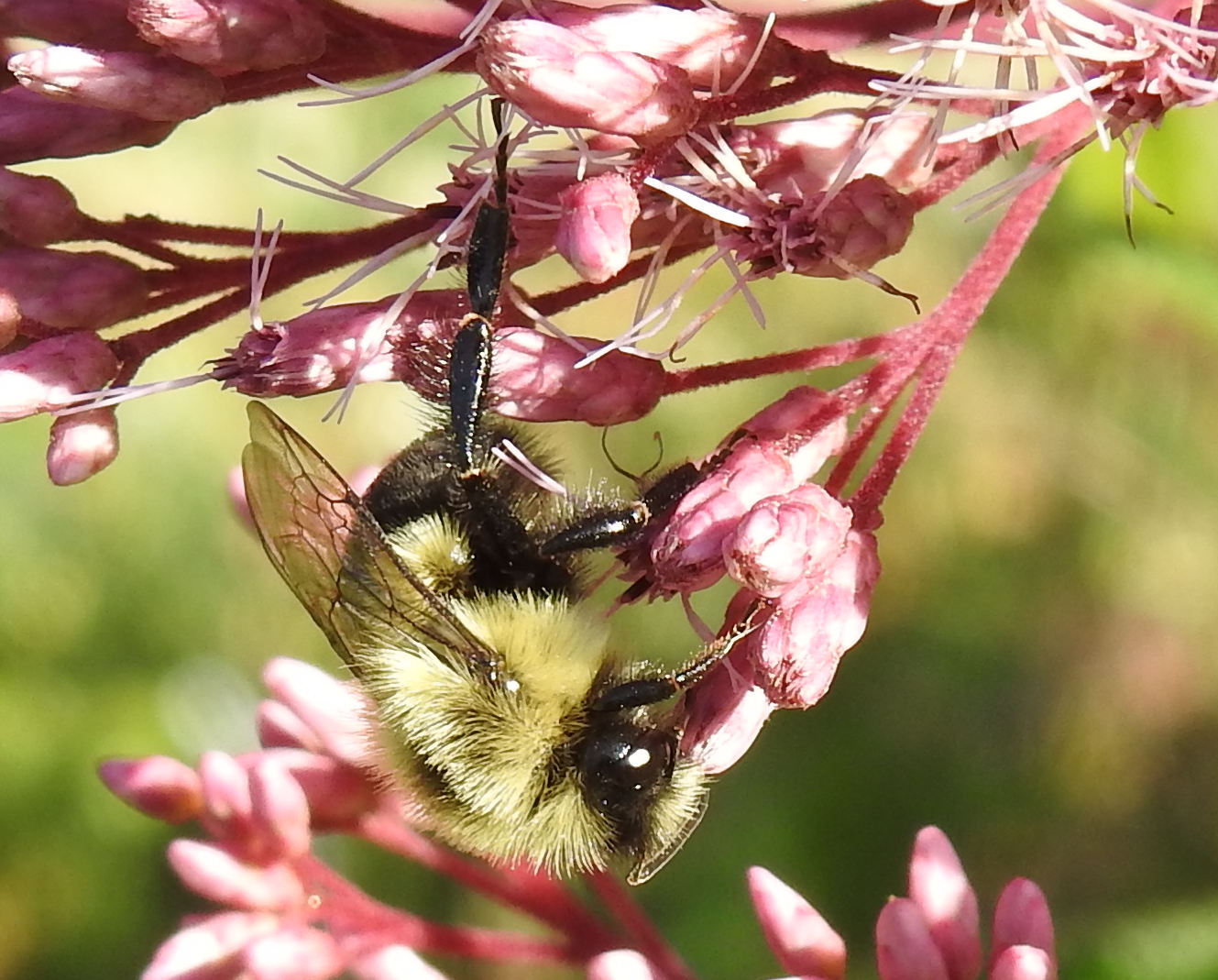by Michelle Hotchkiss, PhD candidate at the University of Ottawa
Here in North America, bumble bees are key pollinators for both natural plant communities and agricultural crops. One important aspect of bumble bee health is their gut microbiome, which protects against pathogen infection, boosts the bee immune system, and may help process nutrients from nectar and pollen. In bumble bees, there are two main microbiome types: one comprising microbes that are adapted to living in bee guts and another in which those bee-adapted microbes are displaced by environmental microbes that normally live in soil or on flowers. This second microbiome type is assumed to less beneficial than the first.

Common Eastern Bumble Bee gathering nectar and pollen from Joe-Pye Weed at the Fletcher Wildlife Garden. Photo by Sandy Garland.
We conducted a survey of gut microbiomes in wild Common Eastern Bumble Bee workers at 13 non-agricultural sites across Ottawa, including the Fletcher Wildlife Garden, to see if we could find both microbiome types. We collected 86 bees in total, extracted the DNA from their guts, and performed DNA sequencing to determine which microbes were present.
After data analysis, we found that all the wild bees we surveyed had a microbiome dominated by bee-adapted microbes and, therefore, at least from a microbiome standpoint, appear to be in good health. In addition, we found a bee-adapted microbe in our wild bee guts, Gilliamella apicola, which is absent from Common Eastern Bumble Bee workers from commercial colonies used in the area.
Our next step in this project will be to inoculate sterile bumble bee workers with a microbiome from either the wild bees collected this summer or purchased commercial bees to determine if there is a difference in bee performance depending on microbiome source.
Related information
uOttawa review provides insight into interactions between bee gut microbiotas and pesticides
How hibernation and pesticides disturb the bee gut microbiome
Michelle Hotchkiss is working on a doctorate degree in the Forrest and Poulain Labs at the University of Ottawa.